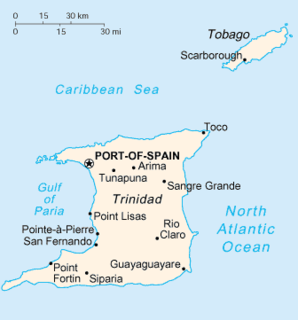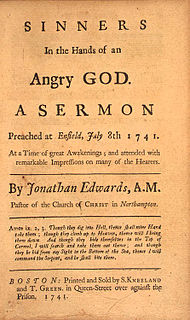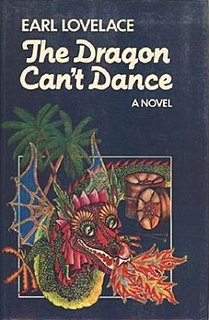
Baptists form a major branch of Evangelical Christianity distinguished by baptizing professing Christian believers only, and doing so by complete immersion. Baptist churches also generally subscribe to the doctrines of soul competency, sola fide, sola scriptura and congregationalist church government. Baptists generally recognize two ordinances: baptism and communion.

The Eucharist is a Christian rite that is considered a sacrament in most churches, and as an ordinance in others. According to the New Testament, the rite was instituted by Jesus Christ during the Last Supper; giving his disciples bread and wine during a Passover meal, he commanded them to "do this in memory of me" while referring to the bread as "my body" and the cup of wine as "the new covenant in my blood". Through the eucharistic celebration Christians remember Christ's sacrifice of himself on the cross.

This article is about the demographic features of the population of Trinidad and Tobago, including population density, ethnicity, education level, health of the populace, economic status, religious affiliations and other aspects of the population.

Trinidad is the larger and more populous of the two major islands of Trinidad and Tobago. The island lies 11 km (6.8 mi) off the northeastern coast of Venezuela and sits on the continental shelf of South America. It is often referred to as the southernmost island in the West Indies. With an area of 4,768 km2 (1,841 sq mi), it is also the fifth largest in the West Indies.

In Christian theology, the real presence of Christ in the Eucharist is the doctrine that Jesus is present in the Eucharist, not merely symbolically or metaphorically, nor literalistically, but sacramentally.

The First Great Awakening or the Evangelical Revival was a series of Christian revivals that swept Britain and its thirteen North American colonies in the 1730s and 1740s. The revival movement permanently affected Protestantism as adherents strove to renew individual piety and religious devotion. The Great Awakening marked the emergence of Anglo-American evangelicalism as a trans-denominational movement within the Protestant churches. In the United States, the term Great Awakening is most often used, while in the United Kingdom the movement is referred to as the Evangelical Revival.

Indo-Trinidadians and Tobagonians or Indian-Trinidadians and Tobagonians, are people of Indian origin who are nationals of Trinidad and Tobago whose ancestors came from India and the wider subcontinent beginning in 1845.
Afro–Trinidadians and Tobagonians are people from Trinidad and Tobago who are largely of West African Sub-Saharan descent. Social interpretations of race in Trinidad and Tobago are often used to dictate who is of African descent. Mulatto-Creole, Dougla, Zambo-Maroon, Pardo, Quadroon, Octoroon or Hexadecaroon were all racial terms used to measure the amount of African ancestry someone possessed in Trinidad and Tobago, and throughout North American, Latin American and Caribbean history.
The culture of Trinidad and Tobago reflects the influence of Asian, European, African, Amerindian, American, West Indians and Arab cultures. The histories of Trinidad and Tobago are different. There are differences in the cultural influences which have shaped each island. Trinidad and Tobago is an English-speaking country with strong links to the United Kingdom.
The Spiritual Baptist faith is a Christian religion created by enslaved Africans in the plantations they came to in the former British West Indies countries predominantly in the islands of a Grenada, Saint Vincent and the Grenadines, Tobago and the Virgin Islands. It is syncretic Afro-American religion that combines elements of the different traditional African religion brought by the enslaved populations combined with Christianity. Spiritual Baptists consider themselves to be Christians.
Religion in Trinidad and Tobago, which is a multi-religious nation, is distributed as follows: The largest religious group is Christianity with 63.2 percent of the population. This includes Protestant Christians with Anglicans, Presbyterians, Methodists, Evangelicals, Pentecostals, Shouter or Spiritual Baptists and regular Baptists as well as Roman Catholics. Hindus are 20.4 percent, Muslims 5.6 percent. There is an Afro-Caribbean syncretic faith, the Orisha faith with 1 percent and there are Rastafaris with 0.3 percent. Other Religions account for 7.0 percent and "None/not shared" for 2.5.
Earl Wilbert Lovelace is a Trinidadian novelist, journalist, playwright, and short story writer. He is particularly recognized for his descriptive, dramatic fiction on Trinidadian culture: "Using Trinidadian dialect patterns and standard English, he probes the paradoxes often inherent in social change as well as the clash between rural and urban cultures." As Bernardine Evaristo notes, "Lovelace is unusual among celebrated Caribbean writers in that he has always lived in Trinidad. Most writers leave to find support for their literary endeavours elsewhere and this, arguably, shapes the literature, especially after long periods of exile. But Lovelace's fiction is deeply embedded in Trinidadian society and is written from the perspective of one whose ties to his homeland have never been broken."

Eucharistic theology is a branch of Christian theology which treats doctrines concerning the Holy Eucharist, also commonly known as the Lord's Supper. It exists exclusively in Christianity and related religions, as others generally do not contain a Eucharistic ceremony.

Trinidad and Tobago, officially the Republic of Trinidad and Tobago, is the southernmost island country in the Caribbean and is known for its fossil-fuel wealth. Consisting of the main islands Trinidad and Tobago, and numerous much smaller islands, it is situated 130 kilometres south of Grenada and 11 kilometres off the coast of northeastern Venezuela. It shares maritime boundaries with Barbados to the northeast, Grenada to the northwest and Venezuela to the south and west. Trinidad and Tobago is generally considered to be part of the West Indies. According to some geographic definitions, Trinidad and Tobago are also part of the Windward Islands and Lesser Antilles, while other definitions regard Trinidad and Tobago as a separate island group.

The Dragon Can't Dance (1979) is a novel by Trinidadian author Earl Lovelace, his third to be published. Set in Port of Spain, the novel centres on the life of Aldrick Prospect, a man who spends the entire year recreating his dragon costume for Carnival. Aldrick's interactions with other people who live in his neighbourhood form the backdrop for their individual struggles for self-definition in a society dominated by its racial divisions and colonial legacies. The story culminates with Aldrick and Fisheye, along with a small number of followers, hijacking a police van and taking two police officers hostage. The events surrounding the hostage-taking, and the aftermath of the event, lead the reader on a journey through the colonial psyche, and expose the deep-seated problems of a society that still has not reconciled itself with its colonial past and racial divisions.

Religion of black Americans refers to the religious and spiritual practices of African Americans. Historians generally agree that the religious life of black Americans "forms the foundation of their community life." Before 1775 there was scattered evidence of organized religion among black people in the Thirteen Colonies. The Methodist and Baptist churches became much more active in the 1780s. Their growth was quite rapid for the next 150 years, until their membership included the majority of black Americans.
Paul Sylvester Morton is an American Baptist pastor. He is the senior pastor of Changing a Generation Full Gospel Baptist Church in Atlanta, Georgia, and co-pastor of Greater St. Stephen Full Gospel Baptist Church in New Orleans, Louisiana. He is also a recording artist, author, and founder of the Full Gospel Baptist Church Fellowship, International.
The Presbyterian Church of Trinidad and Tobago is a Presbyterian church in Trinidad and Tobago, established by missionaries from the Presbyterian Church in Canada.
The Baháʼí Faith in Trinidad and Tobago begins with a mention by ʻAbdu'l-Bahá, then head of the religion, in 1916 as the Caribbean was among the places Baháʼís should take the religion to. The first Baháʼí to visit came in 1927 while pioneers arrived by 1956 and the first Baháʼí Local Spiritual Assembly was elected in 1957 In 1971 the first Baháʼí National Spiritual Assembly was elected. A count of the community then noted 27 assemblies with Baháʼís living in 77 locations. Since then Baháʼís have participated in several projects for the benefit of the wider community and between 2005 and 2010 various sources report near 1.2% of the country, about 10,000–16,000 citizens, are Baháʼís.

The Merikins or Merikens were African-American Marines of the War of 1812 – former African slaves who fought for the British against the US in the Corps of Colonial Marines and then, after post-war service in Bermuda, were established as a community in the south of Trinidad in 1815–16. They were settled in an area populated by French-speaking Catholics and retained cohesion as an English-speaking, Baptist community. It is sometimes said that the term "Merikins" derived from the local patois, but as many Americans have long been in the habit of dropping the initial "A" it seems more likely that the new settlers brought that pronunciation with them from the United States. Some of the Company villages and land grants established back then still exist in Trinidad today.









